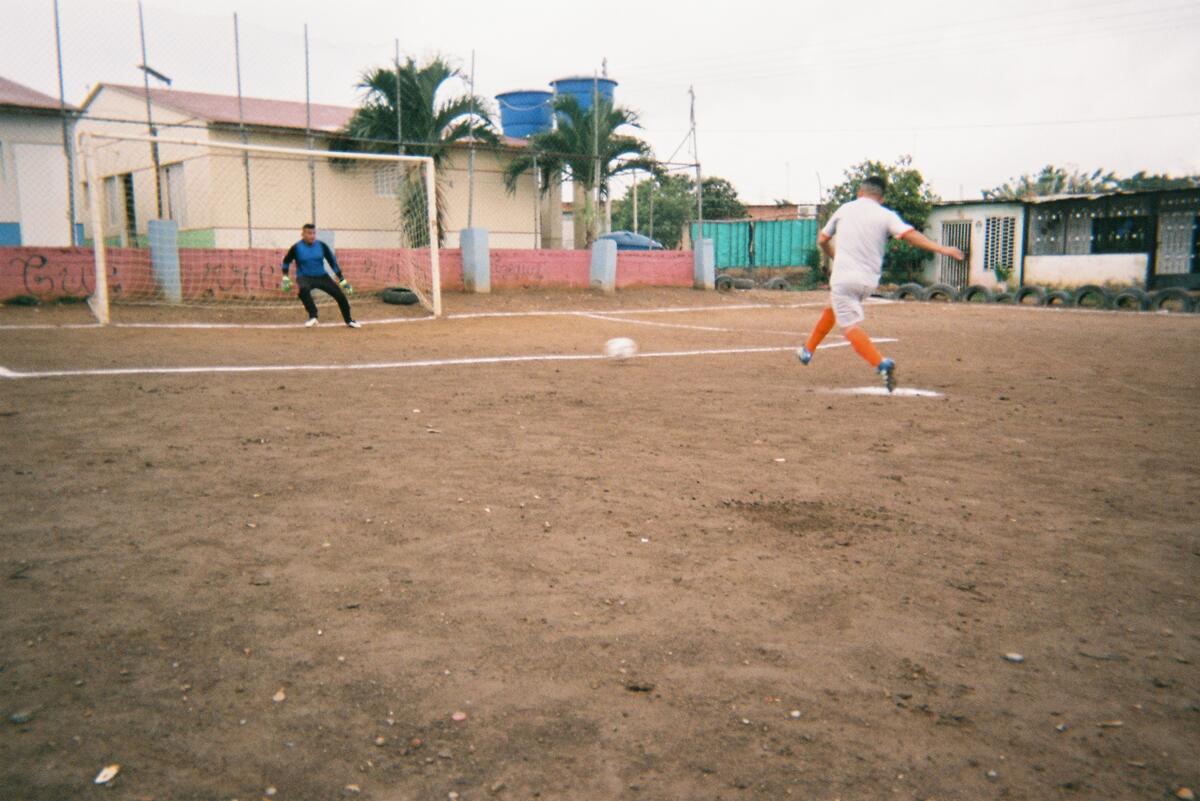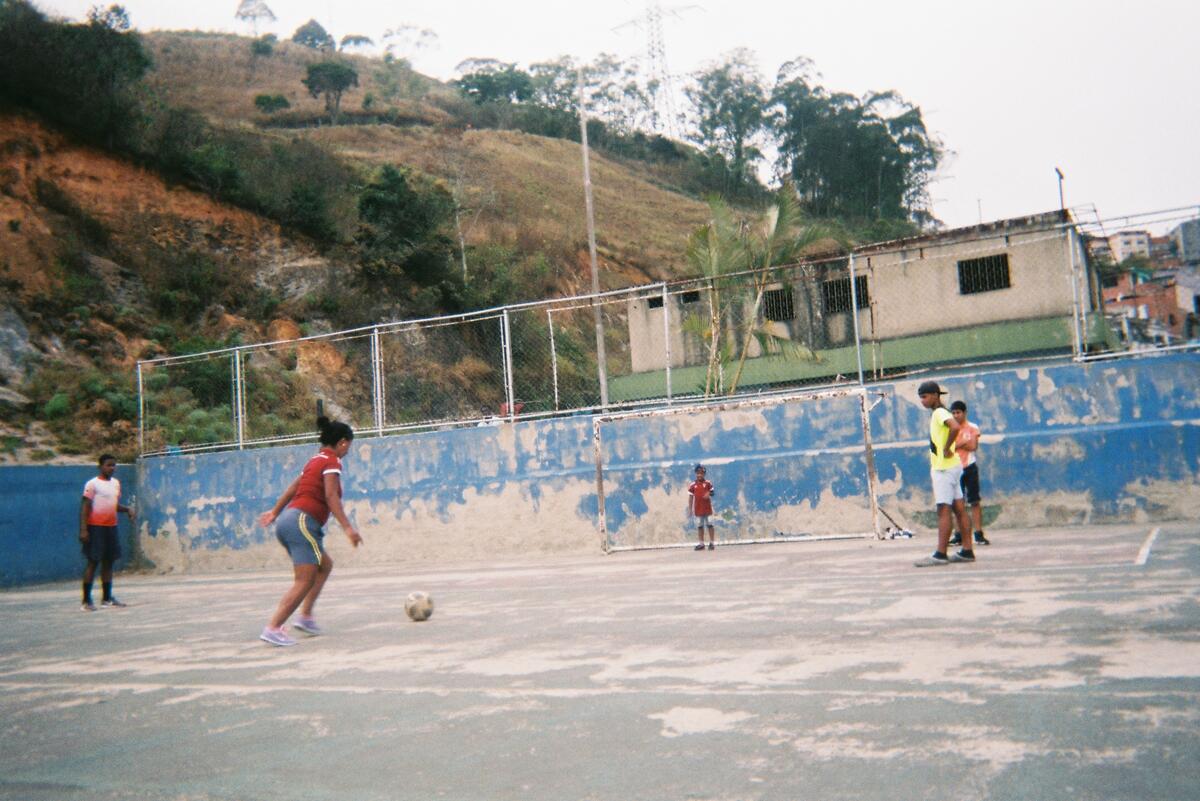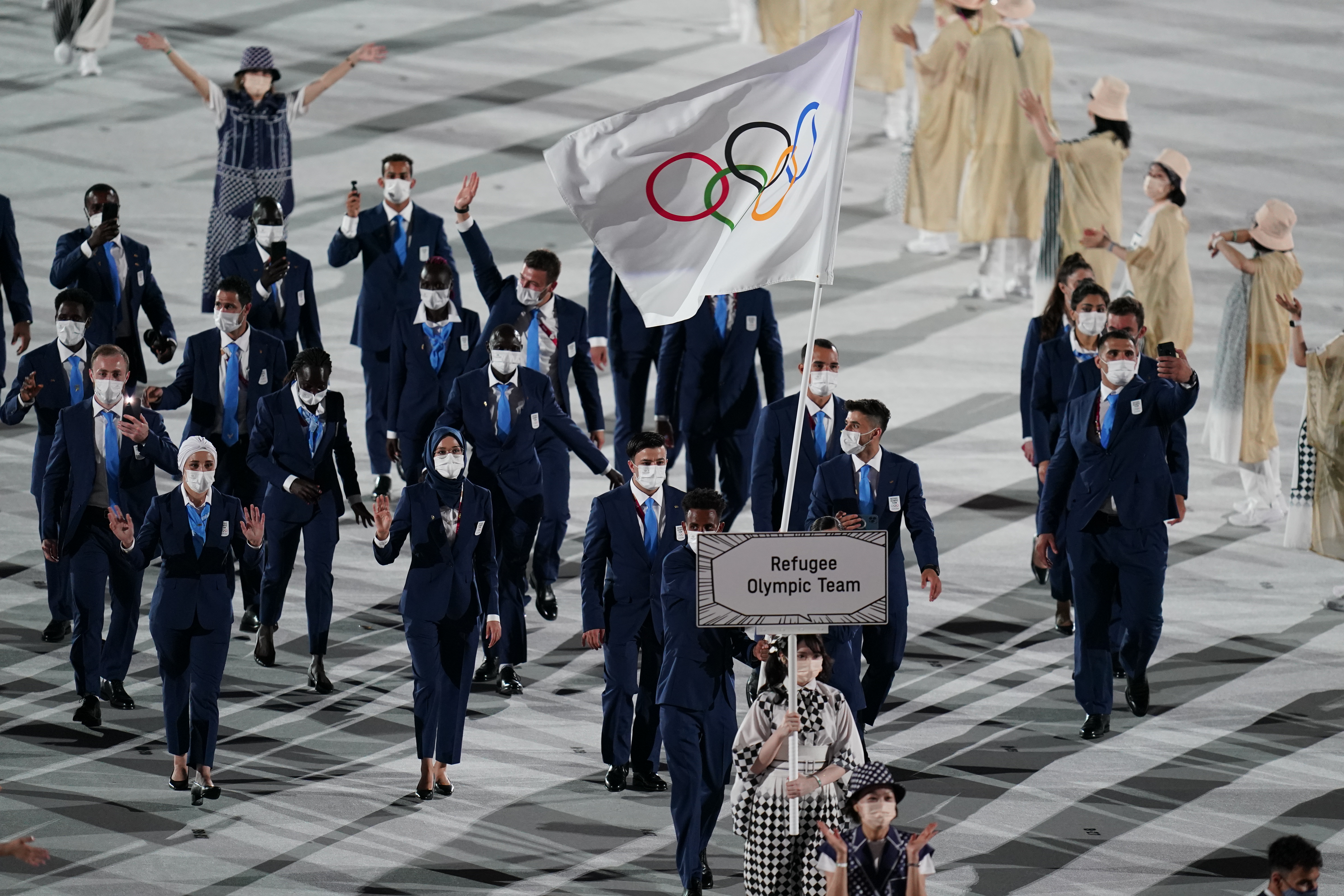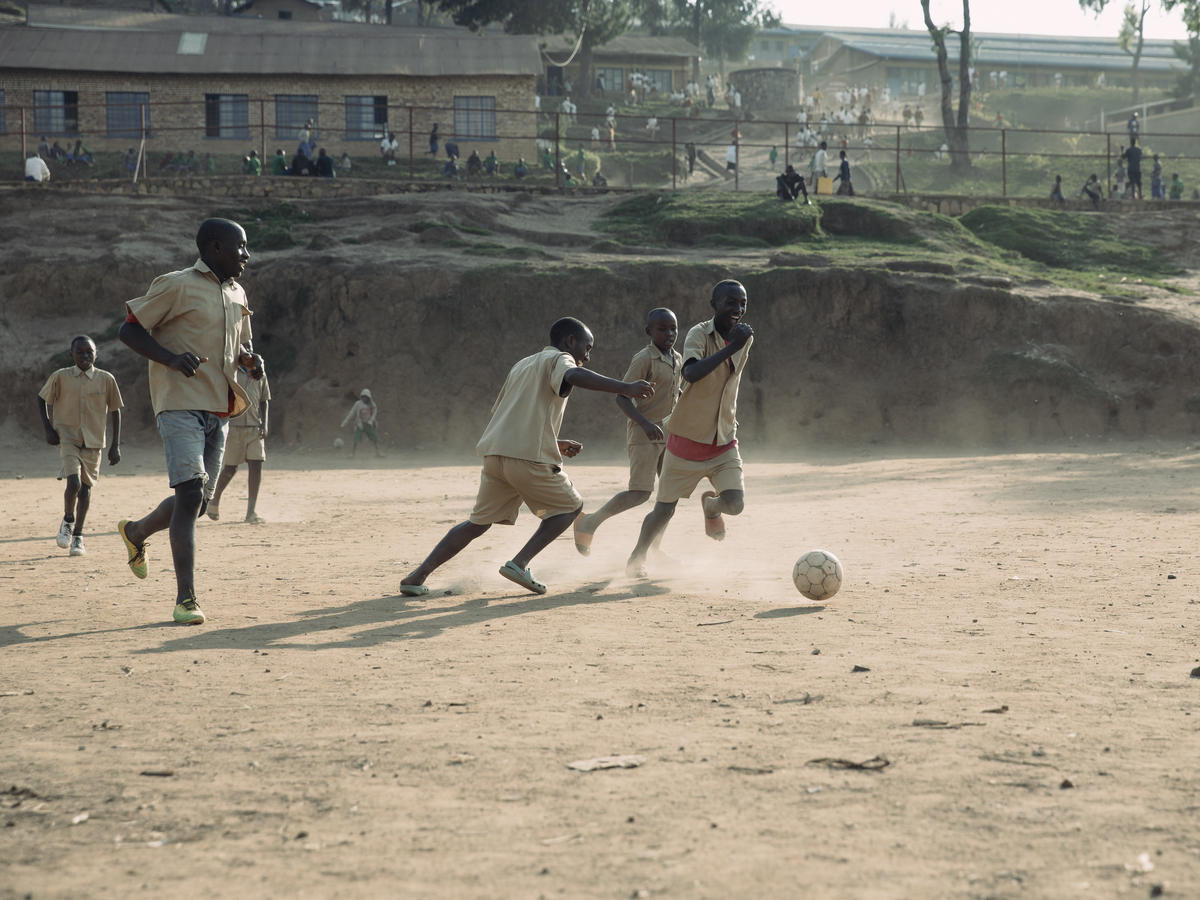Sports tournament breaks down barriers in northern Ecuador
Sports tournament breaks down barriers in northern Ecuador

LAGO AGRIO, Ecuador, May 7 (UNHCR) - The northern Ecuadorean town of Lago Agrio was the setting recently of a sports tournament aimed at breaking down barriers and promoting refugee integration in an area where many Colombians have sought shelter.
Some 20 teams from around the province of Sucumbíos descended on Lago Agrio in the Ecuadorean Amazon last Sunday to take part in the "Integration without Borders" competition, which was sponsored by UNHCR and the International Olympic Committee (IOC).
The male and female participants included Ecuadoreans, Colombian refugees, indigenous children and young people with physical and mental disabilities. They competed in soccer, a local football game and athletics.
"It has been a challenge to gather, for the first time, so many organizations in the province and to enforce the idea of equal participation in terms of nationality, gender and ethnicity," said Tiziana Vicario of the Italian aid agency COOPI, a UNHCR implementing partner and lead organizer of the tournament. "Hopefully it will be the beginning of a more inclusive vision of community-building in this part of the country, which thrives in natural and human diversity."
Vicario said the idea for the games came after the IOC contributed US$7,500 to be used for sports projects aimed at promoting refugee integration in Ecuador.
The Provincial Sports Federation provided technical expertise and helped draw up the rules, which included a stipulation that each team must include an equal number of Ecuadoreans and Colombians to promote the goal of integration.
The tournament started with a parade of 300 people from Lagio Agrio's cathedral to the provincial capital's sports complex. Local and provincial authorities, including a representative of the Sucumbíos governor, attended the opening ceremony alongside representatives of UNHCR and other organizations.
The games kicked off in the sweltering conditions with a match between the all-male Untouchables and Colégio Gallegos, and another between the all-female teams, Las Panitas and Conamune.
Among the competitors was 15-year-old Samuel, a Colombian who has lived in Lago Agrio for the past eight years with his parents and siblings after fleeing violence in southern Colombia's Caqueta department. He could be a poster boy for integration; when the national anthem started playing, Samuel sang along with his Ecuadorean teammates.
"This province needs more initiatives like this to bring Ecuadoreans and Colombians together in peace," said Tania, who works for CONAMUNE, an organisation that represents the interests of women of African descent. UNHCR helped identify Afro-Colombians in the province to take part in the games.
There are up to 250,000 Colombians of concern to UNHCR in Colombia, most of whom have not registered after crossing the border into provinces like Sucumbíos.
The Ecuadorean government recently announced development plans for Sucumbíos and three other provinces bordering Colombia. "Plan Ecuador" includes measures aimed at improving the integration and standards of living of the Colombians who have fled conflict in their land over the years. It envisages close cooperation with UNHCR.
"UNHCR has been working in Ecuador since 2000, which makes us the UN agency with the longest presence in the area. Aside from working for the protection of refugees, we also support projects to promote the improvement of the living conditions of host communities and refugees alike," said Martha Juárez, UNHCR's representative in Ecuador. "We are ready to cooperate with the government with UNHCR's technical expertise in refugee issues."
Projects like the sports tournament here dovetail with the government's vision for peace and development in the border regions.
By Xavier Orellana in Lago Agrio, Ecuador








